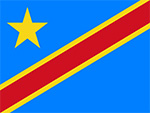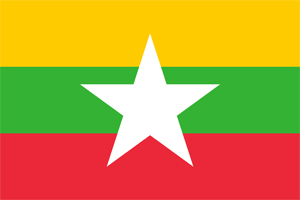UNICEF’s Game Plan to Accelerate Safely Managed Sanitation for All
UNICEF
(
United Nations / Multilateral body
)
#SDGAction50690
Description
UNICEF’s Game Plan to Reach Safely Managed Sanitation will cover the eight years between 2022 and 2030. The ambition of this Game Plan is to help governments achieve safely managed sanitation for their populations, and meet the sanitation target of the Sustainable Development Goals (SDGs). Under the Game Plan to Reach Safely Managed Sanitation, UNICEF will support 1 billion people to gain access to safely managed sanitation, through direct and indirect support, in collaboration with partners and under the leadership of government. As one of the most off-track SDGs, achieving the target for sanitation requires a quadrupling of progress. To meet this challenge, the game plan outlines a shift in UNICEF's ambition and programming approach. Aligned to the SDG 6 Accelerator Framework, it sets a course for greater systems strengthening within UNICEF programmes, aiming to create an enabling environment for rapid progress. It includes a compilation of the most essential government-led approaches and interventions, such as strengthening policy, improving sector coordination, securing appropriate finance, developing capacity at all levels and generating timely data for decision making. It calls for UNICEF to work with a wide range of partners, seeking collaboration, partnerships and alliances with other development partners, academics and private sector organizations with different and complementary capacities. It calls on UNICEF to think big and work at scale— supporting holistic, comprehensive solutions that transform the sector and create game-changing momentum through government- led policy and governance changes. It takes advantage of UNICEF’s presence in over 100 countries, including many fragile contexts. It embraces gender-responsive sanitation, encourage women’s leadership in the sanitation sector, and address the disproportionate impact of poor sanitation on women and girls. It mainstreams sanitation service delivery approaches that are climate-resilient, and considers sanitation as fundamental to both climate change adaptation and mitigation. The overarching objective is to fulfil UNICEF’s mandate to protect children's rights and to help meet their basic needs. It is designed to inspire UNICEF’s partners—to meet it in the shared ambition of safely managed sanitation for all.
The Sanitation Game Plan helps to dramatically improve partner support to countries by acting together in support of country priorities. The Game Plan is aligned to the SDG 6 Acceleration Framework which provides a valuable framework for achieving accelerated, coordinated progress on sanitation, and the Game Plan is aligned with them.
1. Governance: Make SDG 6 everyone’s business through cross-sector and transboundary collaboration, clear roles, stakeholder involvement, and effective and inclusive institutions.
2. Financing: Optimize financing for water and sanitation, particularly for countries and communities with limited access to financial resources.
3. Data and information: Build trust through data generation, validation, standardization and information exchange for decision- making, incentivization and accountability.
4. Capacity development: Focus on inclusive human and institutional capacities at all levels to deliver SDG 6.
5. Innovation: Leverage and scale up innovative practices, financing mechanisms and technologies, including technologies that are accessible for rural areas and marginalized communities.
Each accelerator is a ‘pillar’ within the Game Plan, with particular programming approaches related to each. The collaborative nature of the acceleration framework is reflected in the Game Plan as UNICEF action will rely on partnerships, collaboration and leveraging resources. The pillars are heavily interconnected and linked, and work under one may overlap with one or more others. Work on the accelerators must take place across multiple levels of government, including both national and local governments.
Possible implementation approaches and interventions for UNICEF are chosen in light of the country context, history of sanitation interventions, appropriate entry points, government priorities, country office capabilities, and the likelihood of success. The choice of implementation approach and priority interventions is based on a thorough understanding of the local context, including the levels of capacity and resources available, and UNICEF’s comparative advantage. Under the Game Plan, UNICEF will be open to a range of tools, methodologies and approaches, both those developed by UNICEF and by its partners.
Development agencies: WaterAid, Plan International, IRC, WSUP, and at the country level: local civil society organizations, including faith-based organizations, local NGOs and community-based organizations
Private Sector: Unilever, LIXIL and local private sector associations (e.g. PASA, OPWASH)
Partnerships and Alliances: SWA, Toilet Board Coalition
United Nations agencies: WHO, UN-Water, UNHCR, UN Habitat
Regional platforms: AMCOW, Association of Southeast Asian Nations, Southern African Development Community (SADC), AfWASA, the CWIS Technical Assistance (TA) Hub, ESAWAS
Donors: The Bill & Melinda Gates Foundation, USAID, DGIS
Academia: The University of Leeds, University of Technology Sydney, Institute of Development Studies, ITN-BUET
Finance institutions: The World Bank Group, African Development Bank, InterAmerican Development Bank, Asian Development Bank
SDGS & Targets
Goal 6
Ensure availability and sustainable management of water and sanitation for all
6.1
By 2030, achieve universal and equitable access to safe and affordable drinking water for all
6.1.1
Proportion of population using safely managed drinking water services
6.2
By 2030, achieve access to adequate and equitable sanitation and hygiene for all and end open defecation, paying special attention to the needs of women and girls and those in vulnerable situations
6.2.1
Proportion of population using (a) safely managed sanitation services and (b) a hand-washing facility with soap and water
6.3
By 2030, improve water quality by reducing pollution, eliminating dumping and minimizing release of hazardous chemicals and materials, halving the proportion of untreated wastewater and substantially increasing recycling and safe reuse globally
6.3.1
Proportion of domestic and industrial wastewater flows safely treated
6.3.2
Proportion of bodies of water with good ambient water quality
6.4
6.4.1
Change in water-use efficiency over time
6.4.2
Level of water stress: freshwater withdrawal as a proportion of available freshwater resources
6.5
By 2030, implement integrated water resources management at all levels, including through transboundary cooperation as appropriate
6.5.1
Degree of integrated water resources management
6.5.2
Proportion of transboundary basin area with an operational arrangement for water cooperation
6.6
6.6.1
Change in the extent of water-related ecosystems over time
6.a
6.a.1
Amount of water- and sanitation-related official development assistance that is part of a government-coordinated spending plan
6.b
Support and strengthen the participation of local communities in improving water and sanitation management
6.b.1
Proportion of local administrative units with established and operational policies and procedures for participation of local communities in water and sanitation management
SDG 14 targets covered
| Name | Description |
|---|
Deliverables & Timeline
Resources mobilized
Partnership Progress
Feedback
Action Network

Timeline
Entity
SDGs
Region
- Global
Other beneficiaries
Everyone: rural, urban, poor, non-poor, men, women, children, people with disabilities, the displaced and refugees—true to UNICEF’s commitment to leave no one behind
More information
Countries





































































Contact Information
Ann, Senior Advisor - WASH

